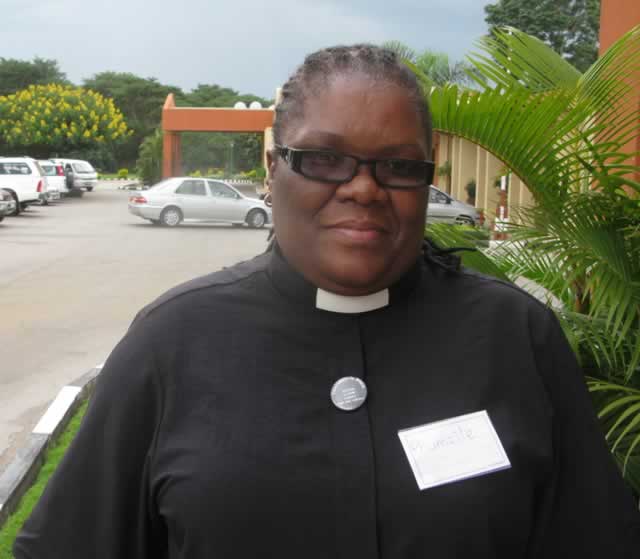Together we can turn the tide
driver when it started raining and on the way he pointed out that the message on my T-shirt was loud, clear and could save lives.
I was interested and asked if he was a family man and why he had said so? The driver was quick to point out that HIV reminded him of his late father and the advent of anti retroviral therapy was a gift that made it possible that his mother is alive today.
The driver said he was 36 years old and was the last born in a family of seven had a wife, three kids and lived in Dzivaresekwa, Harare.
He opened up and said that it was five years ago that they realised that their father could have died from an Aids related illness 20 years ago.
“I was 16 years old and in Form 3 when my father died in 1990. My father first got tuberculosis and later developed boils (mamota) all over. He developed an infection in the digestive track and had open sores even on the lips. This made eating impossible. Since he was no longer eating, he wasted away a lot,” said the taxi driver.
“The elders in my family moved from one sangoma to the other. They tried faith healers, but all in vain. Back then everyone believed that my father was bewitched because he never responded to medication,” he said.
The driver said that they crossed paths with relatives they suspected to have been behind their father’s poor health.
“We ended up with two people we suspected were behind my father’s illness. These were my father’s blood brothers. This ruined the extended family relationship up to today. We have tried to go back and apologise, but the aggrieved are not willing to forgive,” he said.
“My father got bed sores and he died from breathing complications. Infact when I look back today that is when I realise that he suffered a host of opportunistic infections one after the other,” said the taxi driver.
Since the taxi driver was the last born and had older brothers who were already working he managed to write the O Level examination with financial challenges.
“I wrote the O Level examination with no difficulty. I then enrolled for driving lessons four years later when I moved to stay with a brother in Mufakose, Harare. Since then I have worked as a taxi driver and today I own this small car as a sign of hard work,” he said.
The driver said that his mother never remarried. ‘My mother refused to get married to one of the relatives. She chose my elder brother as her keeper. She has kept her word and has never had a lover, not that I know of or have ever heard of,” he said.
The driver said he was surprised that the HIV virus can remain silent for a very long time as witnessed in his mother’s case.
“My mother has been generally of good health, but five years ago she got tuberculosis. The doctor at Murambinda Mission Hospital which is our rural home suggested that she gets tested for HIV,’ he said.
“We laughed it off, but she insisted on the test and explained the benefits since our father had died. From what we had described she said his death pointed more to being Aids related.
“The doctor explained that there was a dual effect at times of one having TB and having lost immunity. After fully understanding what the doctor said we all agreed as a family that our mother must get tested. She too did not object,” he said.
“Mother tested HIV positive and only then did we realise that she could have been HIV positive all these years. Maybe the nutritional foods she had and that she did not have any cross infections related to sex meant that she waded off the virus that long,” said the driver.
“We as a family are grateful to the late Dr Monica Glenshaw and staff at Murambinda Hospital for saving our mother’s life. She first treated the TB for some months and then initiated her on ARVs after thorough counselling,” he said.
“Our mother responded well to medication and within a year she was fully recovered and taking the ARVs religiously,” he said.
The driver said their mother who is now aged 78 is healthy and lives in Buhera.
“Our mother visits her children in different cities, but she lives at Murwira village in Buhera. Infact she receives the best treatment from Murwira clinic for the past three years when she was transferred from Murambinda Hospital to the nearest clinic.
MSF Belgium has opened 27 clinics in Buhera to dispense ART. MSF Belgium working in conjunction with their partners have helped equip Murambinda Hospital with drugs and equipment. Working together with MSF Belgium as their partners, the hospital has changed gloom and doom to hope and positive living.
MSF Belgium has equipped the hospital with a geneXpert machine, CD4 count machines and a doctor who works at the centre. The geneXpert machine diagnoses TB which is resistant to rifampicin. Rifampicin is the main drug in TB treatment. When TB is resistant to the drug, we then have a patient suffering from drug resistant TB. The patient also passes that type of TB.
MSF-Belgium has built a waiting area for pregnant mothers and rehabilitated the outpatients department at a cost of US$700 000.
The waiting list (those waiting to begin ARVs) in the district is negligible, with only those waiting for their investigations to be completed on the list. Everyone eligible for ART is catered for.
The district has reached out to 88 percent of people in need of ART. As a district they have reached universal access. The success of Murambinda Mission Hospital has posed a challenge as people come from as far as Harare, Mutare and even Bulawayo. No one has been turned away.
The National Aids Council reported that nationally three quarters of hospital beds are occupied by people with HIV and Aids related conditions.
“Most admissions in our hospitals are Aids related illnesses and this puts a strain on the health delivery system. 75 percent of patients admitted in hospitals are due to Aids related illnesses which means that HIV is still a major issue for Zimbabwe,” said Trust Govere National Aids Programmes Co-ordinator in Harare last week.
“2006 was declared ‘The year of accelerating HIV prevention in high prevalence countries’ and Zimbabwe is in this category which means we need concerted effort to further see the prevalence rate go down,” he said.
The current HIV prevalence rate stands at 14,3 down from 26 percent a decade ago. This is still too high and needs to be revised downwards.
With 476 000 people on ART, 70 percent of these are supported by foreign funding. The National Aids Levy which is a domestic fund covers the balance.
Were donor fund to end what will become of the 70 percent? As we approach World Aids Day which is marked on December 1 globally lets all have a united effort to see no new HIV infections.
The theme for this year is: “Getting to zero” This applies to zero new HIV infections, zero Aids related deaths, zero discrimination and zero tolerance to gender based violence.
An Aids-free generation is possible if we all see to it.
[email protected]







Comments